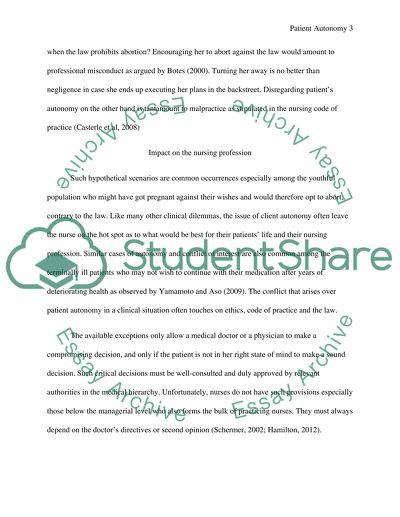Brief discussion of an ethical issue impacting the nursing profession Article. Retrieved from https://studentshare.org/nursing/1467733-brief-discussion-of-an-ethical-issue-impacting-the-nursing-profession
Brief Discussion of an Ethical Issue Impacting the Nursing Profession Article. https://studentshare.org/nursing/1467733-brief-discussion-of-an-ethical-issue-impacting-the-nursing-profession.


